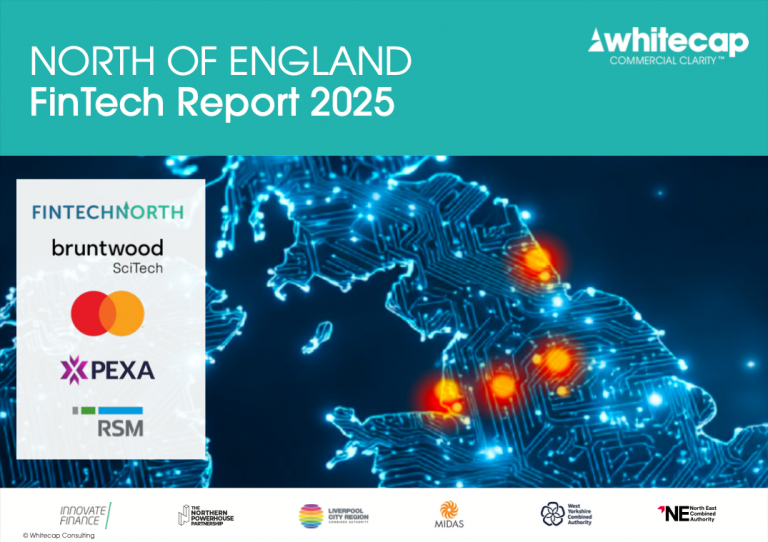Wright Vigar makes senior promotions as part of continued investment in talent
Splendid Hospitality Group boosts York’s tourism sector with major investment
Splendid Hospitality Group (SHG) is ramping up its investment in York’s hospitality industry with a series of ambitious projects aimed at enhancing the city’s appeal for both business and leisure travellers. The company, one of the region’s largest hospitality operators, is injecting millions of pounds into its existing hotels, reflecting a long-term commitment to improving visitor experiences and fostering local economic growth.
The investment includes a comprehensive refurbishment of SHG’s ibis Styles York Centre. This Grade II listed building, once a brewery, has been updated to include 16 new rooms. The renovation highlights the company’s focus on blending historical charm with modern convenience to cater to diverse guest needs. This follows SHG’s commitment to maintaining high standards across its properties in York.
Meanwhile, The Grand, York, the city’s only five-star hotel, is undergoing a significant upgrade to its spa facilities, with £2.5 million earmarked for new treatment rooms and state-of-the-art wellness technology. The project, expected to be completed by early 2026, is part of a larger plan to refresh the hotel’s guest rooms and dining spaces, reinforcing SHG’s reputation for top-tier hospitality.
SHG is also growing its portfolio in York, having secured a deal to acquire 98 Walmgate, a property next to its Hotel Indigo York. The site, currently a restaurant, is set to be repurposed into an expanded accommodation and dining space, further diversifying SHG’s offerings. Additionally, the group has acquired 37 Tanner Row, a Grade II listed building, with plans to transform it into luxury long-term suites, providing an enhanced experience for extended stays.
As the city’s tourism continues to thrive, SHG is also considering further upgrades at its Holiday Inn Express York location. The company is exploring the potential for additional rooms to meet growing demand, as well as a full renovation of the public spaces in line with new Holiday Inn Express standards.
This extensive investment is being made as York’s visitor economy remains strong, with tourism contributing significantly to the city’s economic success. SHG’s continued development within the region demonstrates its dedication to supporting local growth while providing exceptional experiences for visitors.
Leeds office boosts northern expansion
A leading planning consultancy is expanding its northern presence with the launch of a new office in Leeds, located in the city’s business hub at Wellington Place, just a short walk from the railway station. This office forms part of the firm’s broader strategy to grow its northern footprint, with plans to increase headcount in the region and open a Manchester office soon.
The Leeds office will be led by Dan Mitchell, who joins as a partner with 28 years of experience in planning and development. He will oversee the establishment and growth of the northern team, with an ambition to scale to eight members within 18 months. The office will cater to clients from across the northern region, including landowners, developers, and public sector bodies, providing comprehensive planning services.
Supporting Dan is Hannah Malyon, a principal planner who will join in August with five years of experience, including work with the Environment Agency. The new office will focus on a wide range of planning projects, from residential and employment developments to retail and mixed-use schemes, serving both private and public sector clients.
The office’s design facilitates flexible, collaborative working, allowing the team to partner effectively with clients and project stakeholders across the region.
Business Lincolnshire partners with UK Government to boost business support
Creative and cultural celebrations boost visitor spend in West Yorkshire
Lincolnshire food and drink gift company secures £500k investment
Asda invests in Yorkshire stores as part of £7.2m refurbishment plan
Asda is investing £7.2m in a store renovation programme across key locations in Yorkshire. The Leeds-based supermarket chain will refurbish stores in Kingswood, Harrogate, York, Pudsey, and Keighley by the end of 2025, as part of its broader strategy to improve the customer experience.
The refurbishments will include a revamped shop floor layout for easier navigation, new lighting, and neon signage aimed at modernising the stores. Additionally, Asda plans to allocate £4.6m to update two other stores in Grimsby and Stockton.
The project is set to begin in September, with each store’s refurbishment taking around seven weeks. The chain assured that stores will remain open throughout the work.
This follows the success of a £2m renovation at Asda’s Pilsworth store in Bury, completed earlier this year. The company intends to expand the renovation programme to more UK locations in 2026.
FinTech growth fuels £5bn boost to the North of England’s economy
The FinTech sector in the North of England is now adding £5 billion to the regional economy each year, with nearly 400 firms employing close to 20,000 people. This contribution is growing, as the workforce across FinTech and related sectors swells to almost 70,000.
The North, which accounts for over 20% of the UK’s population and generates £344 billion in economic output, has long been recognised for its importance in driving national economic growth. The region’s educational infrastructure, with 42 universities and over a million students, further supports its rising prominence in FinTech.
New recommendations aim to accelerate sector growth, such as a dedicated FinTech Accelerator, Investment Fund, and Reskilling Programme. The report also highlights the concentrated FinTech clusters in cities like Manchester, Leeds, and Liverpool, where Payments, Banking, and WealthTech dominate.
Despite a strong economic footprint, the report points to gaps in diversity, noting the low percentage of female founders. Nevertheless, with continued investment and support, the sector is poised to play an even greater role in the UK’s broader financial technology landscape.
This data underscores the North’s growing influence as a key player in global FinTech.
Small businesses adopt technology and eco-friendly measures to reduce costs
Small business owners are increasingly turning to technology and sustainable practices to tackle operational challenges and reduce costs, according to recent research from Smart Energy GB.
The study reveals that over 84% of small business owners are confident in using new digital tools, with a significant focus on automating time-consuming tasks. Key areas for automation include accounting, invoicing, customer communication, marketing, and tracking energy costs.
Financial pressures are also a concern, with 22% of respondents identifying energy costs as a significant burden. Despite this, only 24% feel completely in control of their cash flow and financial planning.
Sustainability is also a growing consideration for small businesses. The research shows that 84% of owners see sustainability as an important factor in their decision-making. Many are now considering eco-friendly technology, with 73% more likely to invest in sustainable tech if it offers a cost benefit. Additionally, 31% of respondents say they are responding to customer demand for more sustainable practices.
Efforts to reduce environmental impact include waste reduction (30%), energy-saving initiatives (25%), and upgrading to more energy-efficient technology (22%). For many, these measures are seen as both environmentally responsible and beneficial for long-term business sustainability.
Coastal flood defences at risk of failure unless significant investment is made
Flood defences along Lincolnshire’s coast are expected to become ineffective by 2040 without substantial funding, according to the Environment Agency (EA). A failure of the coastal defences could result in flooding in areas such as Mablethorpe, with floodwaters reaching around 1.3 metres, and Ingoldmells, with up to 1.6 metres of water.
The flood defences, stretching 30 miles from Saltfleet to Gibraltar Point, are under pressure, with nearly 90% predicted to fail in the next two decades. The region, which lies below sea level, relies heavily on these defences to protect over 20,000 homes and 38,000 static caravans. Without immediate action, the area’s flood protection could be compromised.
The Environment Agency has estimated that replacing the existing flood defences will require billions of pounds. Additionally, ongoing maintenance costs, such as the replenishment of sand along the coastline, are currently between £10 million and £15 million annually.
To address this growing issue, a masterplan is set to be developed by 2028, with the aim of securing funding and contracts by 2036. Local councillors have highlighted the urgent need for investment to prevent economic decline in local holiday resorts. If adequate funding is not secured, a “managed retreat” approach may need to be considered, potentially leading to long-term consequences for the region’s infrastructure and economy.












